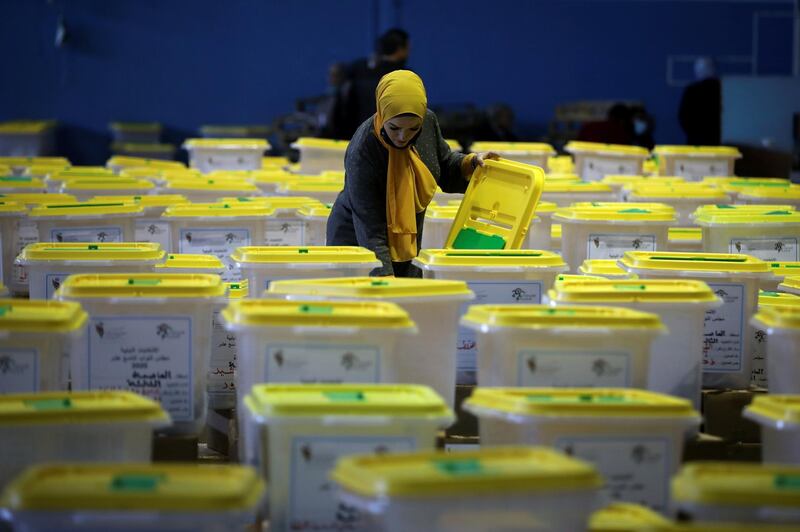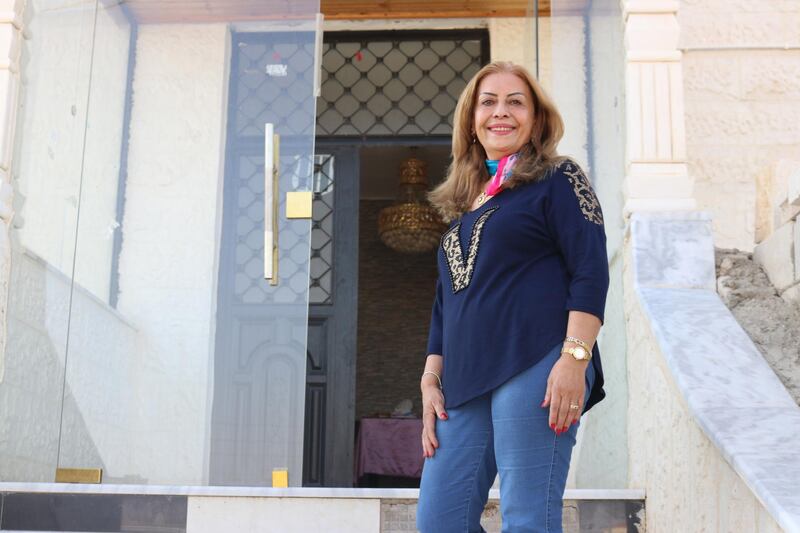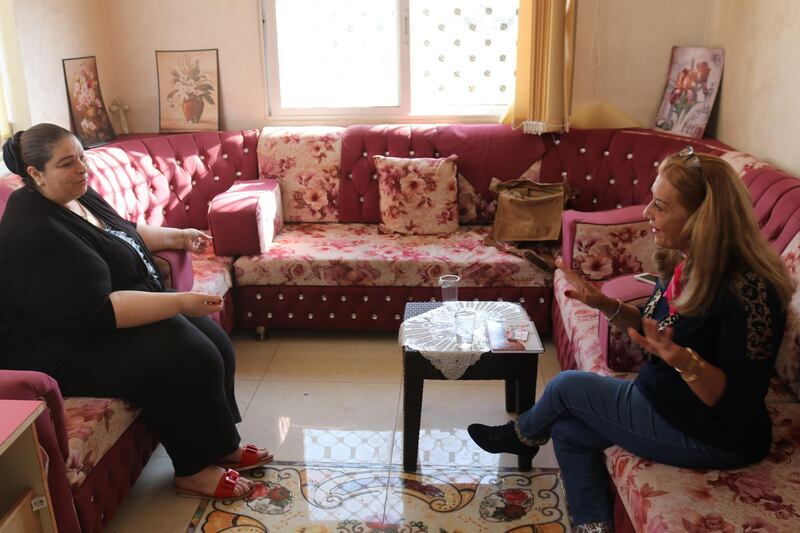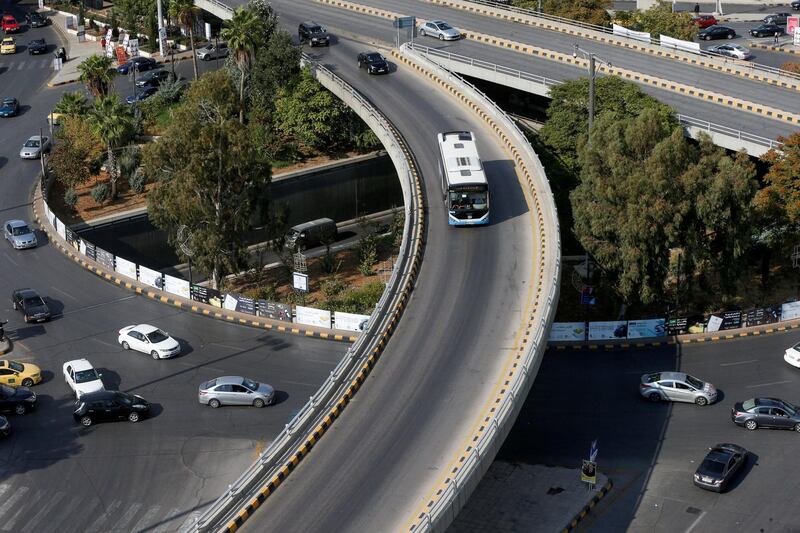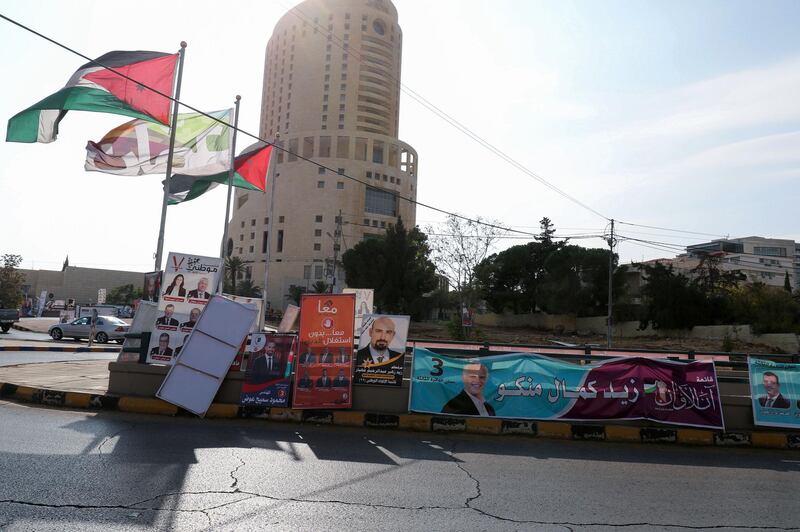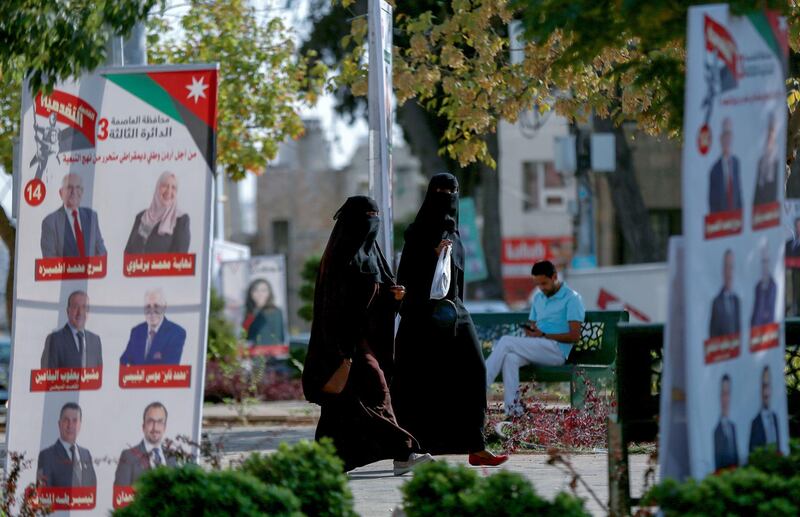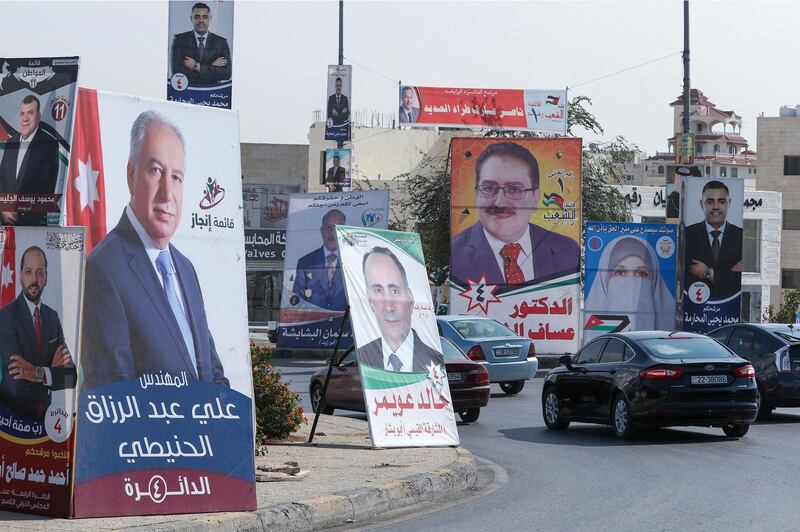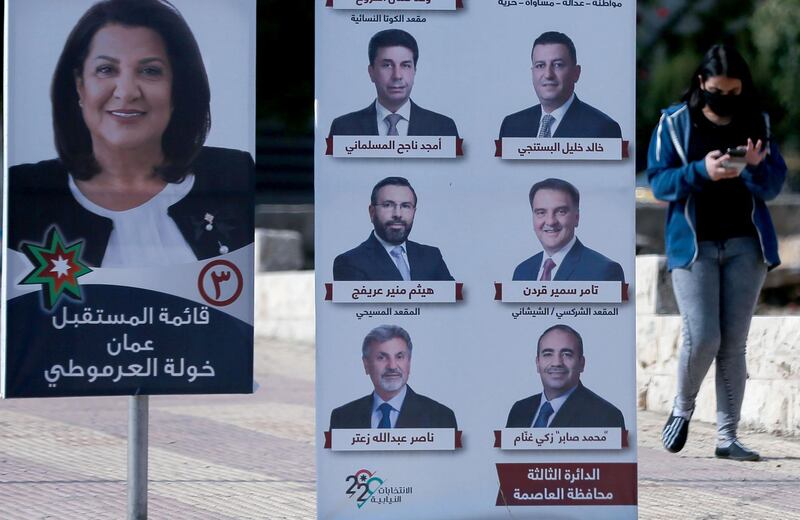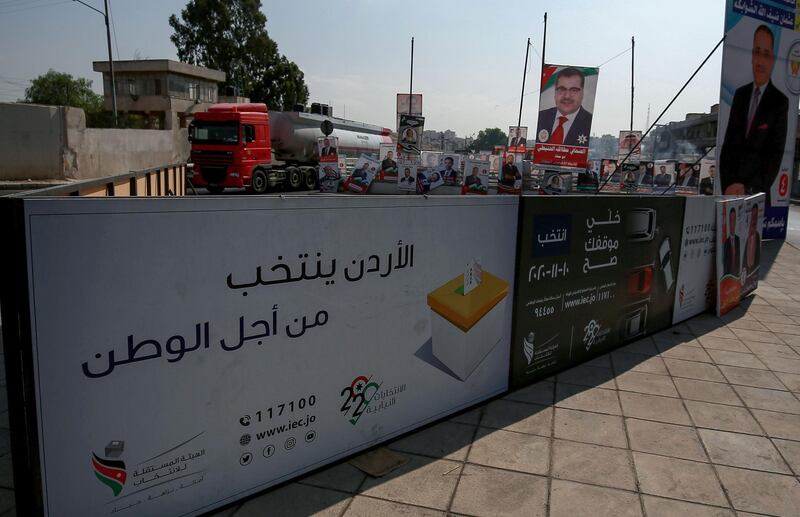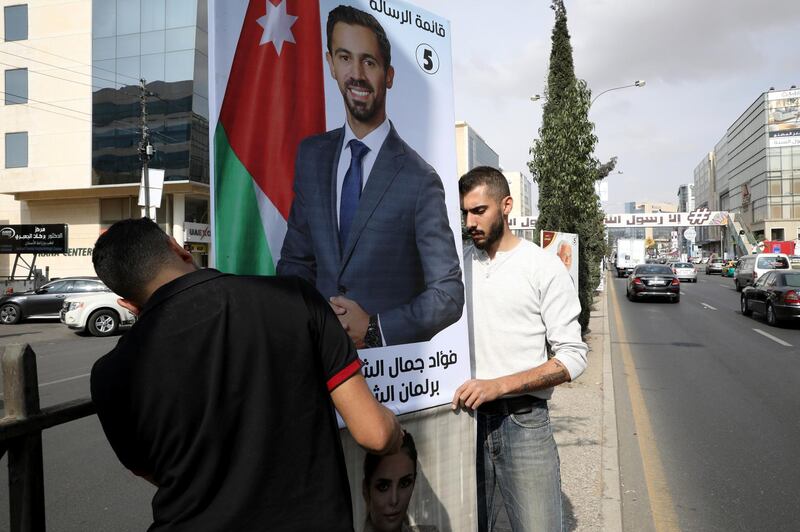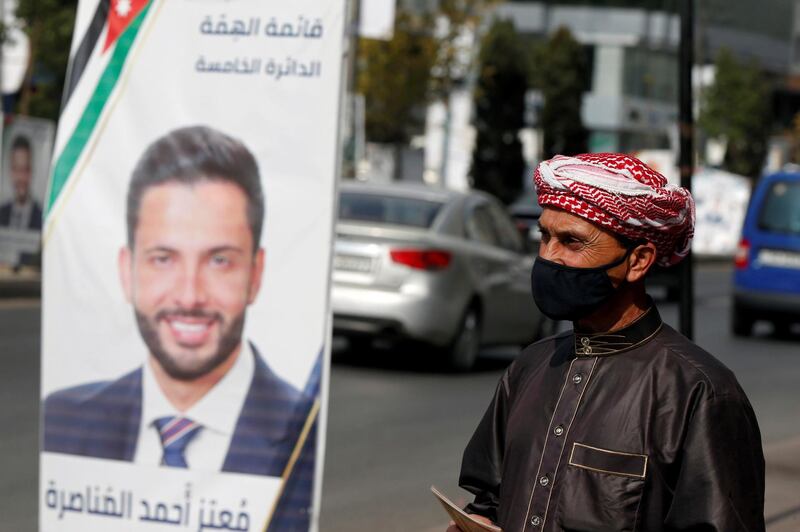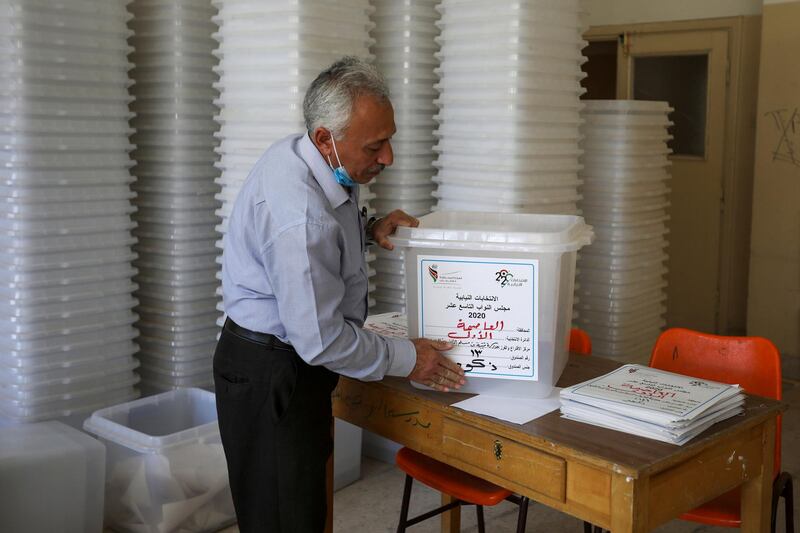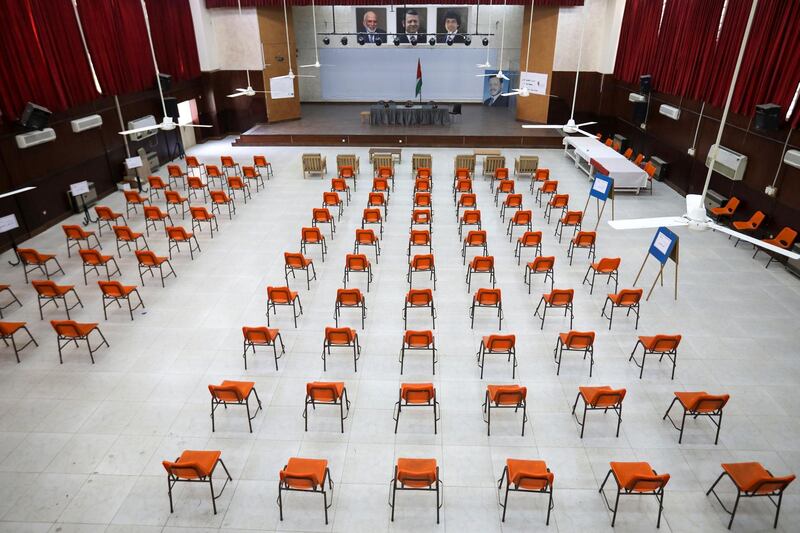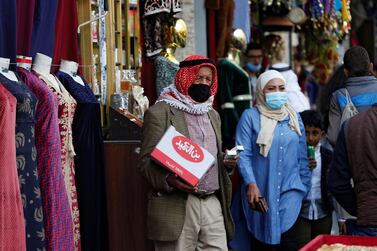Jordanians will go to the polls on Tuesday to vote in parliamentary elections that the government insists must take place despite a sharp rise in coronavirus cases.
The election for the 130-member assembly comes after the economy retreated sharply amid the Covid-19 pandemic and the authorities took a tougher line against their critics.
"Economic, political and social life must continue," Minister of Political and Parliamentary Affairs Musa Al Maaytah said, dismissing calls from some Jordanians to postpone the poll.
Parliament has limited influence in the kingdom, where ultimate decision making rests with King Abdullah II and elections are traditionally marked by low turnout and weighted in favour of the country’s East Bank tribes in outlying regions.
The election usually produces a mix dominated by tribal representatives as well as urban businessmen, a few independent politicians and a 15-member women's quota.
But the last elections in 2016 marked the return to parliament of the Islamic Action Front, a subsidiary of the Muslim Brotherhood, after a nine-year boycott.
The group’s constituency is concentrated in urban areas. It had 16 seats in the legislature which King Abdullah dissolved two months ago as part of the procedure to prepare for the election of a new parliament.
The king holds the main constitutional powers and commands the security forces. Last month he named veteran diplomat Bisher Al Khasawneh as prime minister, a position he is expected to retain after the vote.
Changes to electoral law over the past eight years have allowed for some candidates to be elected on a nationwide basis, as opposed to local constituencies, without diminishing significantly the influence of the tribes.
The pandemic has restricted campaigning by the 1,674 candidates this year mostly to Facebook. Jordan has reported 109,000 Covid-19 cases and 1,230 deaths, most of them in the past six weeks.
A record 364 women are running in the elections, a 44 per cent increase from 2016. For the first time, three all-women electoral lists and dozens of women are competing for seats outside of the women's quota.
They are running on platforms ranging from job creation to overhauling the overburdened health sector. Some women candidates say they want to put an end to patriarchy.
“Before, some men would just add a woman with the right family name to their list to pick up a quota seat,” said Wafa Yousif Tarawneh, candidate for the western city of Karak.
The pandemic has compounded economic difficulties in Jordan and increased tensions between the authorities and their critics. In July, security forces closed Jordan's teachers union and arrested members of its leadership, accusing them of incitement and corruption.
Former deputy Saleh Al Armouti highlighted the economic hardships in a Facebook video, blaming international financial institutions for making the plight of ordinary Jordanians worse.
“Our poor country can no longer feed itself because of the hegemony,’ he said, referring to the International Monetary Fund which has been trying to help the government manage its debt.
The World Bank expects Jordan’s economy, which has been stagnating in recent years, to contract by 3.5 per cent this year. Unemployment is running at least at 23 per cent and public debt has been steadily rising to beyond the size of the national.
The official poverty rate, comprising those who live under $100 a month, is 15.7 per cent of the 10 million population.
